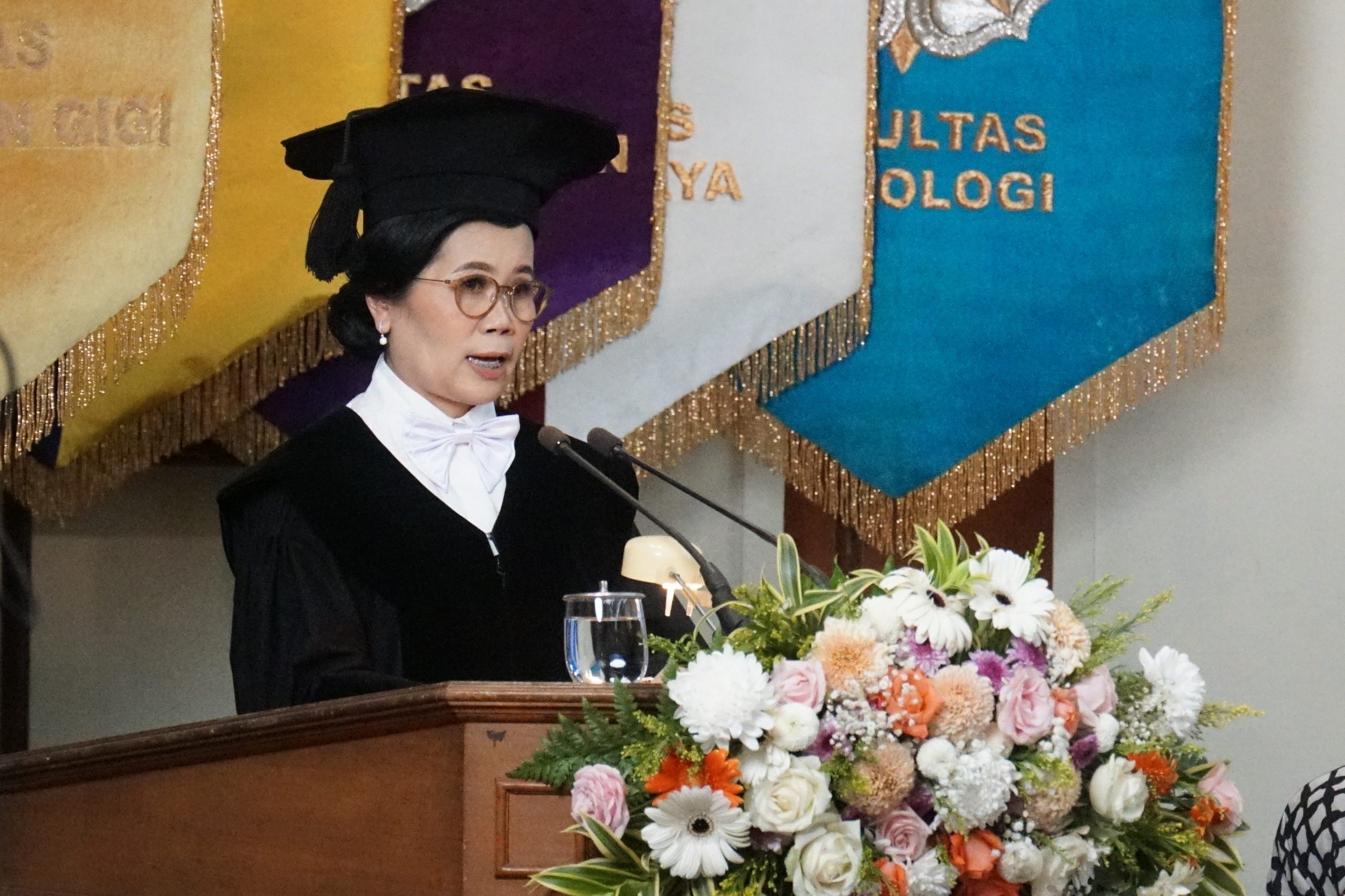Prof. drg. Heni Susilowati, M.Kes., Ph.D., was officially inaugurated as a Professor in Oral Microbiology and Immunology at the Universitas Gadjah Mada (UGM) Senate Hall. During the ceremony, she delivered her inaugural lecture titled: “The Role of Pseudomonas aeruginosa in Oral Cavity Infections” on Tuesday (14/1).
In her speech, Prof. Heni emphasized the importance of oral health as an integral part of overall well-being. Quoting the 2024 World Oral Health Day theme, “A Happy Mouth is a Happy Body,” she highlighted that oral health encompasses not only prevention but also the treatment and rehabilitation of diseases such as dental caries, periodontal infections, and soft tissue diseases in the oral cavity.
The focus of her lecture was Pseudomonas aeruginosa, a bacterium often overlooked in dental research despite its significant role in oral infections. “This bacterium has complex virulence factors, including biofilm formation, pyocyanin pigment production, and antibiotic resistance, which complicate the healing process,” she explained.
Pseudomonas aeruginosa is a Gram-negative bacterium commonly found in environments such as water, soil, and hospital surfaces. It can cause various infections, especially in individuals with compromised immune systems. In dentistry, P. aeruginosa infections can occur in patients with medical devices or open wounds in the oral cavity, making research on this pathogen crucial for preventing severe complications.
According to the latest data, the prevalence of oral diseases in Indonesia remains high. The 2023 Indonesian Health Survey revealed that 36–49% of adolescents and adults suffer from dental caries or 9.3% experience soft tissue diseases, such as swollen gums or abscesses
Prof. Heni also noted that oral infections are not always caused by native oral microorganisms. “In certain conditions, infections can be triggered by environmental bacteria like Pseudomonas aeruginosa, which is commonly found in hospitals and can easily infect patients with weakened immune systems,” she added.
Her lecture provided an in-depth explanation of the pathogenic mechanisms of P. aeruginosa, including lipopolysaccharide (LPS) modifications for immune evasion, bacterial motility through flagella and pili, biofilm formation, which increases antibiotic resistance.
In her concluding remarks, Prof. Heni stressed the need to raise awareness and implement preventive measures against oral cavity infections. She also emphasized the importance of collaboration between researchers and practitioners to better understand the role of bacteria like P. aeruginosa in oral health.
Author and Photo: Fajar Budi H.

